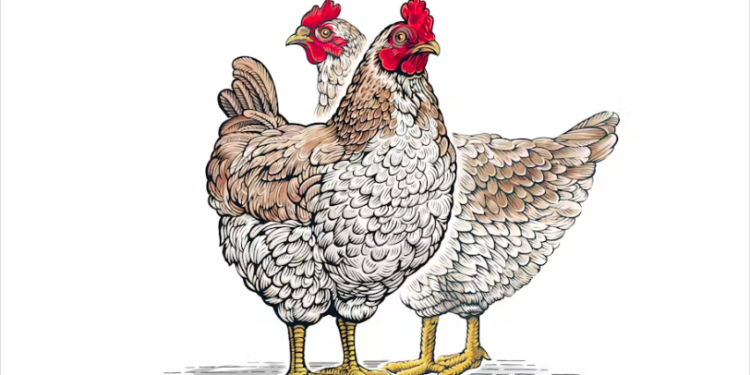Around the world, fast food advertising has been called out for sexualising and objectifying women’s bodies.
In South Africa in 2019, for example, one fast food chain was castigated by advertising authorities for “the gratuitous use of sexualised women and sexual puns, with no product relevance”. At the same time, UK authorities put regulations in place to prohibit ads featuring gender stereotypes that could cause harm or lead to significant or widespread offence.
Zimbabwe is no exception. This is particularly the case with the marketing strategy of popular chain Mambo’s Chicken, which often uses humour and innuendo.
My research as a scholar of gender studies was not so much interested in how Mambo’s Chicken uses tropes of sexualising and objectifying women. Instead, I analysed how these kinds of advertisements might highlight men’s insecurities as they try to assert their social dominance.
These men, the targeted consumers of the chicken, negotiate their masculinity in a time of excessive consumerism and precarious economic conditions in Zimbabwe, where men who were traditionally breadwinners are facing economic challenges.
My critique also explores how the fast food chain incorporates messages that align with Pentecostal values and cultural narratives.
In Zimbabwe, these ads target men who may feel emasculated or weakened because they aren’t able to fulfil traditional expectations of being providers. Using a theoretical framework that draws from a variety of literature, I argue that, by objectifying women and using humour to divert attention from deeper social issues, these ads play into boosting the confidence of these men.
But this empowerment is only superficial and it perpetuates harmful stereotypes and contributes to a culture of toxic misogyny.
It matters to notice these messages because women’s issues have been particularly neglected in Zimbabwe. Their safety in public spaces and their participation in politics remain challenging because of ongoing sexism and misogyny.
Women as sexual objects
Mambo’s Chicken ads have been criticised for the way they treat women as sexual objects by equating their bodies with food. In one advert, for example, they use words like “thick”, “soft” and “big” to describe both fast food items and women’s body parts, such as “thighs”, “breasts” and “buns”. This not only sexualises women but also reduces them to objects meant for consumption.
In the process, the portrayal of women in these ads also highlights issues of masculinity. Zimbabwe’s economic situation has been in meltdown since the 2000s and jobs are scarce. In my analysis, disempowered men in this climate have tapped into sexism to reassert their dominance.
Humour and banter can often reveal deep-seated insecurities in masculinity. By using sexual humour, the adverts depict a form of masculinity that is tied to consumption and dominance over women. For example, one advert reads: “If she is yellow, she is spicy.”
The ad shows chicken with yellow rice, but the outlet’s advertising team chooses the feminine pronoun “she” to refer to the food. This choice of comparing light-skinned Black women to food reinforces harmful gender norms.
Prosperity gospel, consumption and masculinity
I argue that disempowered men also draw on religion to affirm their threatened masculinity. Many Pentecostal churches are led by pastors who position themselves as spiritual fathers and refer to themselves as “Daddy”, placing men at the top of the spiritual order.
In Zimbabwe, the worsening economic situation has seen the rise of churches that preach a prosperity gospel. This is a religious belief which emphasises that God rewards faithful believers with wealth. Followers often equate material success with divine favour.
This focus on the material goes hand in hand with conspicuous consumption: the act of purchasing and displaying luxury products and services to flaunt wealth and social status.
Mambo’s Chicken leverages the prosperity gospel in biblically referenced adverts it posts, especially on Sundays. In one, they reference a chapter and verse of the Bible which reads, “The silver is mine and the gold is mine, declares the Lord Almighty.” The silver and gold refer to material wealth, which is central to the prosperity gospel.
Many charismatic churches in Zimbabwe observe a period of ten days of praying and fasting to start the year. One advert, published in January 2023, states: “Break with some breasts & thighs. After 10 days one needs a holy meal.”
The – perhaps indirect – referencing of women’s body parts is nonetheless striking. Drawing on religion, Mambo’s adds an extra layer to conspicuous consumption, which is already compared to the consumption of women’s bodies.
This triad of conspicuous consumption, sexism, and the prosperity gospel pressures followers to acquire and flaunt wealth. This creates a feedback loop where conspicuous consumption reinforces threatened masculinity.
The prosperity gospel perpetuates a false dream fuelled by conspicuous consumption, and Mambo’s Chicken adverts reveal a precarious masculinity founded on consuming women’s bodies. Men displaying this fragile masculinity spend money on fast food and view women as objects to be bought and possessed, showcasing their financial prowess.
Why does this matter?
The impact of advertising goes beyond selling products. It shapes and reflects society’s norms and influences how people see gender roles. Food adverts like these may seem lighthearted and humorous on the surface, but they reveal deeper issues of masculinity and the treatment of women as objects.
The normalisation of these kinds of depictions makes it more difficult to challenge gender stereotypes and work towards equality. It harms women by reducing them to mere objects for male consumption and stripping them of their agency and power. These harmful narratives limit women’s opportunities and reinforce systemic disempowerment.![]()
Gibson Ncube, Senior Lecturer, Stellenbosch University
This article is republished from The Conversation under a Creative Commons license. Read the original article.














